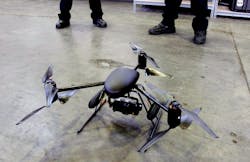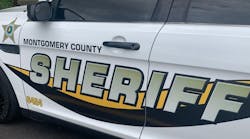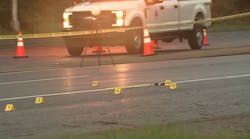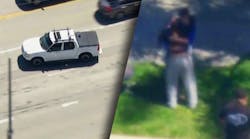Boston's top cop wants drones hovering over next year's marathon, but getting his hands on one may be easier said than done.
More than 30 states, including Massachusetts, are rushing to restrict the use of drones by law enforcement, with some seeking to ban it in all but the most extreme circumstances.
Even if unmanned aerial systems could have shortened the search for the terrorists who wreaked havoc on Boston last week, many people are deeply skeptical about giving authorities carte blanche to use potentially dangerous technology.
"It's not surprising that you have law enforcement agencies rushing out to use [the Boston bombing and subsequent manhunt] as pretext to secure additional powers ... but I think we have to maintain perspective and realize that civil liberties and the protections we're granted under the Constitution and our rights to privacy, to a degree, are nonnegotiable," said Massachusetts state Sen. Robert Hedlund, a Republican and sponsor of a drone restriction bill in the legislature.
Among other things, it would require that local governments, such as the Boston City Council, explicitly grant permission for police to use drones. It also would "prohibit data collection about lawful peaceful activity" and require public reporting of all authorized drone use.
"You don't want to let a couple of young punks beat us and allow our civil liberties to be completely eroded. I don't fall into the trap that, because of the hysteria, we need to kiss our civil liberties away," Mr. Hedlund said of last week's panic that led to the call for drones over Boston.
Local officials and state legislators across the country, along with many in Congress, constitutional analysts, civil liberties groups and political pundits, share Mr. Hedlund's concerns.
But in the aftermath of the Boston attacks, those concerns are colliding with the benefits drones can provide to law enforcement.
Boston Police Commissioner Edward Davis now says he is open to using drones at next year's race for surveillance purposes.
"Drones are a great idea," he told the Boston Herald. "I don't know that would be the first place I'd invest money, but certainly to cover an event like this, and have an eye in the sky that would be much cheaper to run than a helicopter is a really good idea."
By comparing and contrasting unmanned aerial systems with manned aircraft such as helicopters, Mr. Davis raises a key point that law enforcement professionals and drone industry leaders argue is central to the debate.
There seems to be much less public unease, they say, about helicopter surveillance, traffic cameras and more conventional technologies.
When drones are introduced to the equation, paranoia goes through the roof, even if the craft are conducting the same missions and collecting the same types of data routinely gathered by police through other means.
"The problem isn't UAS. The problem is data. If people are concerned that they don't have protections under the Fourth Amendment and they wish to change that, they need to focus their attention on data. It doesn't matter what device is used to collect it," said Stephen Ingley, executive director of the Airborne Law Enforcement Association, a nonprofit group that encourages the use of aircraft in police and public safety operations.
Mr. Ingley also pointed to the fact that cellphone images and department-store cameras proved helpful in the Boston investigation.
"If the images had been captured by a small UAS ... they wouldn't be able to use those images. It begs the question: What is it we're being protected from?" he said.
Indeed, legislation proposed in some states would make it difficult, if not impossible, for police to rely on such photos or video taken by drones.
Mr. Hedlund's bill outlaws the "data collection about lawful peaceful activity," for example. If the Boston police commissioner has his way, many thousands of people will be recorded or photographed peaceably assembling to watch the Boston Marathon.
Those complex issues, and many others surrounding the unfolding domestic drone boom, are still being ironed out.
"It's kind of uncharted territory," Mr. Hedlund said.
There is a reason Boston authorities didn't rush out and buy a fleet of drones once the manhunt began. All agencies, including law enforcement, must have approval from the Federal Aviation Administration to put a drone in the sky.
Under Mr. Hedlund's bill, they also would need permission from local government.
But proponents of drones argue that there is another step - not required by law - that should be taken before police departments dispatch unmanned aerial systems.
"It's extremely important that any public safety agency that is considering the use of a UAS does a public education campaign and makes sure their constituents know what these things are, what they're capable of and what they can't do," Mr. Ingley said.
Copyright 2013 The Washington Times LLC. All Rights Reserved




